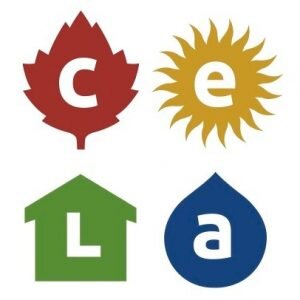Best Education Law Lawyers in Toronto
Share your needs with us, get contacted by law firms.
Free. Takes 2 min.
List of the best lawyers in Toronto, Canada
About Education Law in Toronto, Canada
Education Law in Toronto, Canada, encompasses a wide range of legal issues relating to the education system, including policies, regulations, and the rights and responsibilities of educators, students, and educational institutions. Legal matters may involve public and private institutions, special education, student rights, teacher contracts, and administrative policy-making. These laws help ensure that educational institutions comply with federal and provincial legislation, maintain educational standards, and uphold individuals' rights within educational settings.
Why You May Need a Lawyer
Individuals may seek legal advice in Education Law for several reasons:
- Disputes over special education services for children with disabilities.
- Issues regarding student discipline, such as suspension or expulsion.
- Concerns about discrimination or harassment based on race, gender, disability, or other protected categories.
- Questions surrounding tuition, fees, and financial aid policies.
- Conflicts involving teachers' contracts, employment conditions, or workplace disputes.
- Jurisdiction challenges for families moving to or from the Toronto area.
Local Laws Overview
Several key laws and regulations govern Education Law in Toronto:
- The Education Act: Provides the framework for delivering education services in Ontario, including structure, financing, and management of school boards.
- Human Rights Code: Protects students and educational staff from discrimination and harassment, ensuring equity in educational services.
- Ontario College of Teachers Act: Regulates teacher certification, responsibilities, and professional conduct.
- Accessibility for Ontarians with Disabilities Act (AODA): Ensures that schools accommodate students with disabilities.
- Child and Family Services Act: Offers guidelines for the protection and welfare of children within educational settings.
Frequently Asked Questions
1. What is the role of a school board in Toronto?
The school board is responsible for operating schools according to provincial guidelines. They manage policies, curriculum, and financial budgets to ensure the well-being and educational progress of students within their jurisdiction.
2. Can a school deny enrolment to my child based on their disability?
No, under the Human Rights Code and the Education Act, schools must provide equal access and opportunities for children with disabilities and make necessary accommodations for them.
3. What should I do if my child is facing unfair disciplinary actions?
First, review the school's disciplinary policy. Afterwards, consider discussing the incident with school administrators. If unresolved, consult with an education lawyer to understand your rights and options.
4. How can I request special education services for my child?
Request an assessment from your child's school to determine eligibility for special educational support. If you face challenges, seek legal counsel.
5. Are private schools subject to the same laws as public schools?
Private schools must comply with certain provincial regulations but have more flexibility in staff hiring, curriculum design, and student admissions compared to public schools.
6. How is school funding determined?
School funding is primarily allocated based on enrolment numbers, with additional funding for special education and other targeted programs being decided on a provincial level.
7. Can parents be involved in decision-making processes at schools?
Yes, parents can participate in school councils, which provide input on school policies, practices, and improvements.
8. What should I do if my child experiences bullying at school?
Report the incident to school authorities and review the school's anti-bullying policy. Engage with teachers and administrators to develop a plan for addressing the issue. Legal advice may be necessary if the problem persists.
9. What recourse do teachers have if they face workplace discrimination?
Teachers can file complaints with the school board or pursue claims under the Human Rights Code. Legal assistance may be necessary for navigating complex cases.
10. Are there language rights in education in Toronto?
Yes, Ontario provides educational services in English and French as per the Canadian Charter of Rights and Freedoms, with specific programs available in other languages to support newcomers.
Additional Resources
Consider these resources for further information:
- The Ontario Ministry of Education for policies and regulations.
- The Ontario Human Rights Commission for issues related to discrimination and rights.
- People for Education, an independent organization advocating for public education.
- The Learning Disabilities Association of Ontario for support with special education needs.
Next Steps
If you need legal assistance with an education-related issue:
- Document your situation comprehensively, including communications with school officials or administrators.
- Consult with a lawyer specializing in Education Law to understand your legal rights and options.
- Contact the Law Society of Ontario’s referral service for a free consultation or legal resources.
- Engage with local advocacy groups that may offer additional guidance and support.
Lawzana helps you find the best lawyers and law firms in Toronto through a curated and pre-screened list of qualified legal professionals. Our platform offers rankings and detailed profiles of attorneys and law firms, allowing you to compare based on practice areas, including Education Law, experience, and client feedback.
Each profile includes a description of the firm's areas of practice, client reviews, team members and partners, year of establishment, spoken languages, office locations, contact information, social media presence, and any published articles or resources. Most firms on our platform speak English and are experienced in both local and international legal matters.
Get a quote from top-rated law firms in Toronto, Canada — quickly, securely, and without unnecessary hassle.
Disclaimer:
The information provided on this page is for general informational purposes only and does not constitute legal advice. While we strive to ensure the accuracy and relevance of the content, legal information may change over time, and interpretations of the law can vary. You should always consult with a qualified legal professional for advice specific to your situation.
We disclaim all liability for actions taken or not taken based on the content of this page. If you believe any information is incorrect or outdated, please contact us, and we will review and update it where appropriate.















